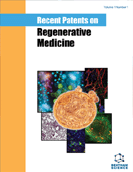Abstract
SULF1/SULF2, the two extracellular sulfatase enzymes, edit the sulfation patterns of heparan sulfate proteoglycans (HSPGs) enabling them to modulate the activities of growth factors and signalling molecules that use HSPGs in their signal transduction pathways. Since signalling molecules regulate development and differentiation of tissues not only during normal development and regeneration but also in disease such as cancer, many components of signalling pathways have been considered as possible targets for therapeutic interventions to regulate growth. Unlike many other signalling components, SULF1/SULF2 enzymes have an added advantage of targeting more than one signalling pathway at a time when multiple growth factors within a specific category are co-activated. Recent characterisation of functionally distinct SULF1 and SULF2 isoforms further refines their use in specific disease conditions. Of particular significance is the use of SULF1/SULF2 variants in promoting stem cell proliferation/differentiation and their applications in pro- and antiangiogenic therapies to promote re-vascularisation of ischemic tissues or inhibit angiogenesis in clinical conditions including cancer. SULF1/SULF2 enzymes also offer a great potential for therapeutic application in cancer by targeting specific SULF1/SULF2-mediated signalling pathways that promote tumour growth to decrease the activity of the dysregulated molecular pathways in these tissues. The relevant patents on the applications of SULF1/SULF2 enzymes in regenerative medicine and cancer therapies are discussed.
Keywords: Anti-angiogenic, development, pro-angiogenic, regeneration, splice variants, Sulf1, Sulf2, therapeutic intervention, tumour growth
 7
7







